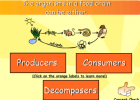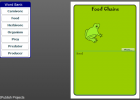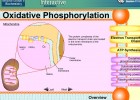Cargando...
Recursos educativos
-
Nivel educativo
-
Competencias
-
Tipología
-
Idioma
-
Tipo de medio
-
Tipo de actividad
-
Destinatarios
-
Tipo de audiencia
-
Creador
-

Food chains
Smart Organización
- 3081 visitas
SMART notebook lesson designed to help us understand that all organisms need energy to live and grow. We classify organisms in the food chain based on their role. We need to sign in to download the resource.
-

Habitats
Purple mash (2 Simple) Organización
- 2970 visitas
This webpage provides a template to help us write about and label the animals in a food chain. We use the word bank as a reference. We improve our writing skills.
-
![Look at the pictures. [...] | Recurso educativo 525698](//web.tiching.com/uploads/contents/2014/05/19/525698_1400529167_s.png)
Look at the pictures. [...]
EduBook Organización
- 1501 visitas
Look at the pictures. Find the names of the three organisms in the word search. Write them in your notebook and draw a food chain to show how they interact:
-

-

The natural environment
EduBook Organización
- 3022 visitas
Adapted. Animals and plants are different depending on their habitat. They are adapted to it. Food chain. The food chain shows what the living things in an ecosystem eat. Biological community. A…
-

Video: Oxidative Phosphorylation
Tiching explorer Organización
- 6 lo usan
- 9814 visitas
The first animation shows how substrate-level phosphorylation is a form of ATP synthesis. NADH and FADH2 produce high-energy electrons which can be used to produce much more ATP through oxidative…
-

-

Unit 11: Towards a global system
EduBook Organización
- 4266 visitas
Brain drain (n): a situation in which the most skilled workers in less economically developed countries (LEDCs) go to work in more economically developed countries (MEDCs). chain (n): a number of…
-

Complete - Remember
EduBook Organización
- 1 lo usan
- 3177 visitas
Complete: A living thing's is the place where it lives. things form the physical environment and living things form the environment. A living thing is to its environment when it can survive and live…
-

Answer true or false
EduBook Organización
- 2889 visitas
Answer true or false: Ecosystems consist of a physical environment and a biological community. → Living things in a biological community do not interact. → Plants can be producers or…
Te estamos redirigiendo a la ficha del libro...




![Look at the pictures. [...] | Recurso educativo 525698](http://web.tiching.com/uploads/contents/2014/05/19/525698_1400529167_s.png)








